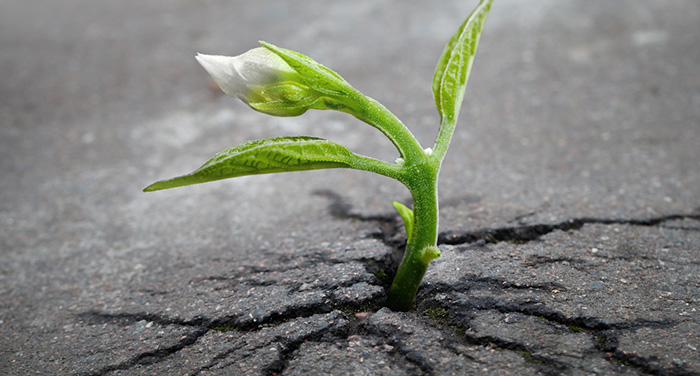Let’s face it. We’re obsessed with happiness:
Am I happy?
I just want to be happy.
I want my kids to be happy.
Why doesn’t my job make me happy?
Why doesn’t my relationship make me happy?
We tend to view happiness as the point of life.
Sounds reasonable. But it turns out to be counterproductive.
Happiness is the wrong goal.
To understand why and how, let’s back up and examine what we’re talking about.
There are many ways to think about happiness. We often think of it as feeling contentment or pleasure. But there’s more to it.
An excellent definition comes from happiness researcher Sonja Lyubomirsky (also a psychology professor):
Happiness: “the experience of joy, contentment, or positive well-being,
combined with a sense that one’s life is good, meaningful, and worthwhile.”
-Sonja Lyubomirsky, happiness researcher
Here we see that happiness can include two important elements:
- the current experience of positive emotions like pleasure and joy
- an overall sense of life satisfaction, with deeper feelings of meaning and purpose
In the U.S., we have a long tradition of reverence for happiness. Even the Declaration of Independence noted our unalienable right not only to life and liberty but also to “the pursuit of happiness.”
This isn’t only an American phenomenon. The World Happiness Report has been published for a decade now. The United Kingdom began measuring national wellbeing ten years ago, following the Kingdom of Bhutan in Asia, which had already been measuring not only gross domestic product but also “gross national happiness.”
The Larger Context of Happiness
One of the challenges with achieving happiness is that there’s a lot to it. It comes with many associated feelings and related notions, including: circumstances (positive or negative), contentment, flourishing, fulfillment, joy, life satisfaction, meaning, mood, quality of life, self-actualization, self-evaluation, success, and wellbeing. Phew!
To understand happiness, we also need to think about unpleasant feelings like sadness, disappointment, anxiety, depression, neuroticism, rumination, and more. That brings up the related issues of adversity, adaptation, and resilience. Clearly, happiness isn’t just about beaches, butterflies, and rainbows.
What’s more, how we think about happiness has changed dramatically over time. Nowadays, we seem to have lost important ideas from ancient times. Enter “eudaimonia.”
Eudaimonia—A Deeper Form of Happiness
Many ancient Greek philosophers focused on what they called “eudaimonia.” It’s commonly translated as “happiness” (and sometimes as “wellbeing” or “human flourishing”), but the roots of the word literally mean the condition of “good spirit.”
What they meant by eudaimonia goes well beyond our modern notion of happiness. They meant happiness through virtuous action, habits of moral excellence, and a full flourishing of self in the world. For Aristotle, eudaimonia was the term for the highest human good. It included fulfillment of human nature in an excellent way. He wrote that eudaimonia entails “doing and living well.” In other words, living a good life.
Here we encounter an important difference: eudaimonia is about habits and actions, whereas the way we think about happiness today is about feelings and mental states. This is actually a long-running debate between the hedonistic tradition (seeking pleasant experiences and avoiding unpleasant ones) and the eudaimonic tradition (living life in a full and deeply satisfying way, in accordance with virtue and excellence).
To the ancients in the eudaimonic tradition, a good life is the quest of a lifetime. It’s something you work toward every day, through your actions, mindsets, and relationships. Today, must of that seems lost.
Stoicism and Happiness
In Stoic philosophy, achieving eudaimonia requires the practice of virtue (rightful action in the world).
The idea is that we can only flourish by living an ethical life, practicing certain virtues (like courage, wisdom, justice, and moderation), and living in accordance with nature. Through right thinking and virtuous action, we can become emotionally resilient to negative events and misfortune.
We can develop self-control and mental strength to overcome harmful emotions that result from errors of judgment. This can help us be free from unproductive emotions like anger and envy.
Buddhism and Happiness
Buddhism focuses on liberation from suffering, including overcoming craving and helping us accept life’s irrefutable truths. It encourages compassion, loving kindness, and a desire for the welfare of all beings.
Buddhist practice includes cultivation of attention and fostering a state of awareness, nonstriving, and detachment (or nonattachment).
A higher aspiration is nirvana, a state of everlasting peace through the release of worldly suffering.
Clearly, there are many paths and practices, old and new, related to happiness.
Happiness in Difficult Circumstances
While some view happiness as a pleasant state free from suffering, pain, or negative circumstances, a closer look reveals that happiness can sometimes depend on such things.
German philosopher Friedrich Nietzsche urged us to recognize the value of difficulties in life, including suffering and unhappiness, since things of great worth can sometimes only be earned through difficulty and struggle.
A 2012 study by Jonathan Adler and Hal Hershfield found that mixed emotional experience (that is, concurrent positive and negative emotional experience, like happiness and sadness) is associated with and precedes improvements in psychological wellbeing.
The issue here is whether to express or suppress negative emotions (like sadness or grief) when things are difficult. One model (called a “co-activation model”) recommends “taking the good with the bad”: “when experiencing the loss of a loved one, allowing positive memories to be experienced alongside sadness could potentially lead to a healthier bereavement process.”
“The deeper that sorrow carves into your being, the more joy you can contain.”
-Kahlil Gibran
In his book, The Happiness Hypothesis, social psychologist Jonathan Haidt writes about the “adversity hypothesis,” which holds that people need adversity and setbacks to reach the heights of personal development, strength, and fulfillment.
Most people have heard about PTSD (post-traumatic stress disorder), but not as many know about “post-traumatic growth”: positive psychological change after struggling with stressful and challenging circumstances. This can occur when we cope well with adversity and turn it into something valuable (such as life lessons, wisdom, or serenity).
Adversity can strengthen relationships by invoking vulnerability and opening our hearts to each other. And it can lead to feelings of love, connection, and gratitude for the help and caring provided. Haidt notes that it can also reorder our priorities (away from the future and toward the present, and away from ourselves and toward others).
It turns out that happiness isn’t about having positive experiences and circumstances and avoiding negative ones (though it’s hard to fault people for striving for that).
Are we really going to cede our happiness to the fickle Fates and precarious fortune, according to whether things happen to be going well in our life?
Some of the things that bring us deeper happiness, wellbeing, and an overall sense of life satisfaction include adversity, pain, and suffering, as long as they include avenues of deeper meaning or connection.
The Wrong Goal, The Right Goal
Happiness is the wrong goal. And so is success. And wealth. Beauty. Fame. Power. Prestige. Comfort. Pleasure.
These aren’t bad. They’re just destined to disappoint. They won’t make us happy.
A better goal, I think, is to live a good life. A life of vitality, connection, and contribution, as Jonathan Fields advises in his book, How to Live a Good Life.
A life of purpose, close relationships, and serving others. How about a life in which we learn, grow, and develop integrity, wisdom, and resilience?
A life of joy and savoring. How about a life of caring and action in the world to make things better, with others?
What does a good life mean for you?
Tools for You
- Traps Test (Common Traps of Living) to help you identify what’s getting in the way of your happiness and quality of life
- Quality of Life Assessment so you can discover your strongest areas and the areas that need work, then act accordingly.
- Personal Values Exercise to help you clarify what’s most important to you
More Articles in this Happiness Series
- What Leads to Happiness
- The Most Important Contributor to Happiness
- The Most Common Myths about Happiness
- The Surprising Relationship between Success and Happiness
- Why Is Happiness So Elusive?
Postscript: Quotations on Happiness
- “You must try to generate happiness within yourself. If you aren’t happy in one place, chances are you won’t be happy anyplace.” -Ernie Banks
- “The purpose of life is not to be happy. It is to be useful, to be honorable, to be compassionate, to have it make some difference that you have lived and lived well.” -Ralph Waldo Emerson
- “Plenty of people miss their share of happiness, not because they never found it, but because they didn’t stop to enjoy it.” -William Feather
- “Happiness is the indication that man has found the answer to the problem of human existence: the productive realization of his potentialities and thus, simultaneously, being one with the world and preserving the integrity of his self.” -Erich Fromm
- “Happiness is when what you think, what you say, and what you do are in harmony.” -Mahatma Gandhi
- “Many people have the wrong idea of what constitutes true happiness. It is not attained through self-gratification, but through fidelity to a worthy purpose.” -Helen Keller
- “The mind is its own place, and in itself Can make a Heaven of Hell, a Hell of Heaven.” -John Milton (from Paradise Lost)
- “The foolish man seeks happiness in the distance. The wise grows it under his feet.” -James Oppenheim
- “A happy life is one which is in accordance with its own nature.” -Lucius Annaeus Seneca
- “The primary cause of unhappiness is never the situation but your thoughts about it. Be aware of the thoughts you are thinking. Separate them from the situation, which is always neutral, which always is as it is.” -Eckhart Tolle
- “Happiness cannot be traveled to, owned, earned, worn, or consumed. Happiness is the spiritual experience of living every minute with love, grace, and gratitude.” -Dennis Waitley
Definitions of Key Terms
- Happiness: “the experience of joy, contentment, or positive well-being, combined with a sense that one’s life is good, meaningful, and worthwhile.” -Sonja Lyubomirsky
- Subjective wellbeing: how we experience and evaluate the quality of our lives, including frequent positive affect (the extent to which we experience positive moods), infrequent negative affect, and cognitive evaluations such as life satisfaction. Sometimes distinctions are made between different types (e.g., mental, physical, economic, and emotional wellbeing).
- Life satisfaction: how we feel about our lives overall and our future. It’s a measure of wellbeing assessed in terms of mood, satisfaction (with relationships and achieved goals), and our perceived ability to cope with the challenges of daily life. Here, researchers note the difference between “affective happiness” (felt in our momentary emotions) and “evaluative happiness” (our sense of our entire life).
++++++++++++++++++++++++++++++
Gregg Vanourek is a writer, teacher, TEDx speaker, and coach on leadership and personal development. He is co-author of three books, including LIFE Entrepreneurs: Ordinary People Creating Extraordinary Lives (a manifesto for integrating our life and work with purpose, passion, and contribution) and Triple Crown Leadership: Building Excellent, Ethical, and Enduring Organizations (a winner of the International Book Awards). Check out his Best Articles or get his monthly newsletter. If you found value in this article, please forward it to a friend. Every little bit helps!








